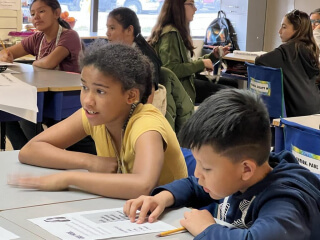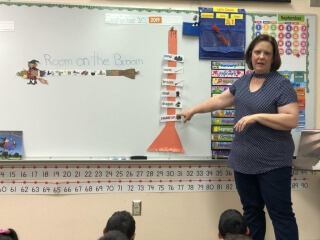For students, being able to comprehend information by listening (+viewing) is an important skill to hone for both college and career preparedness.
For teachers, understanding listening as a skill and being able to effectively apply active listening techniques and strategies can really scaffold students into listening fluency.
TESOL Trainers provides powerful professional development to educators on strategies to promote academic listening fluency.

There are 4 domains of language: speaking, listening, reading, and writing.
Listening, in a linguistic sense means effectively understanding verbal input. In an academic sense, being able to listen effectively has profound importance on student success. Whether students are listening to their peers, their teachers, or something coming from a screen or monitor, one thing is true: Students are constantly listening to something
Just consider how important listening is in these situations:

Top 4 reasons why actively teaching listening as a skill is important:
Most teachers do not understand now important listening is, the challenges that students face, and strategies that teachers can use to scaffold students into being able to listen actively and effectively in an academic setting. As a result, teachers often never teach how to listen (for specific information, for example).
Many educators treat listening like a memory test.
Students listen to something and are asked specific questions about the audio they heard. The only students who succeed with this strategy are the ones who didn't need the practice. They were already fluent. However, the rest of the students (which tend to be the majority), do not succeed on their own.
Fortunately, there are many research-based strategies and techniques to promote listening fluency among all students. Here are a few ways that TESOL Trainers can empower your teachers with academic listening KASA:

TESOL Trainers offers a powerful set of professional development that will dramatically transform the way that listening is approached by teachers and students at school. Contact John Kongsvik, the director of TESOL Trainers, to discuss how we can set you up for success.™
Become part of our TESOL network and gain access to valuable content!